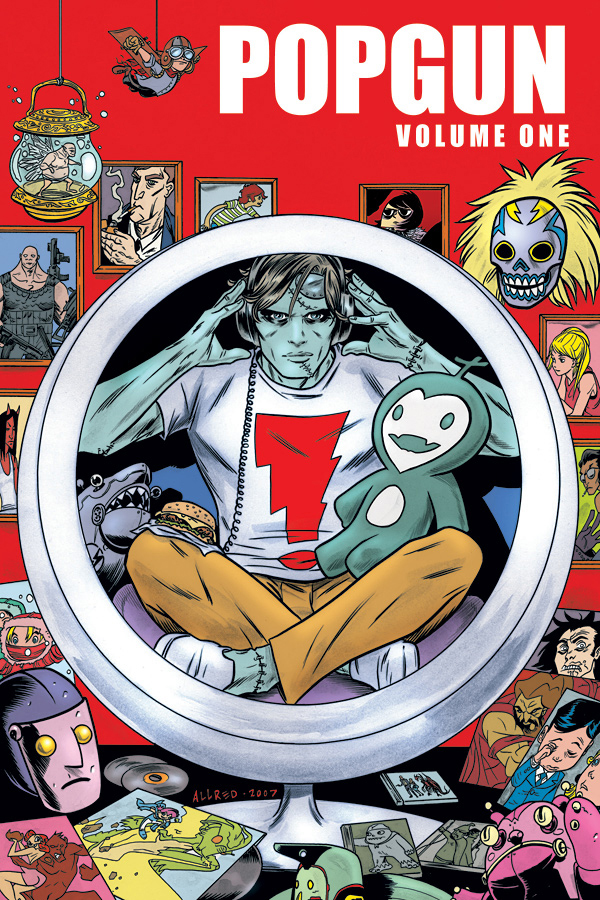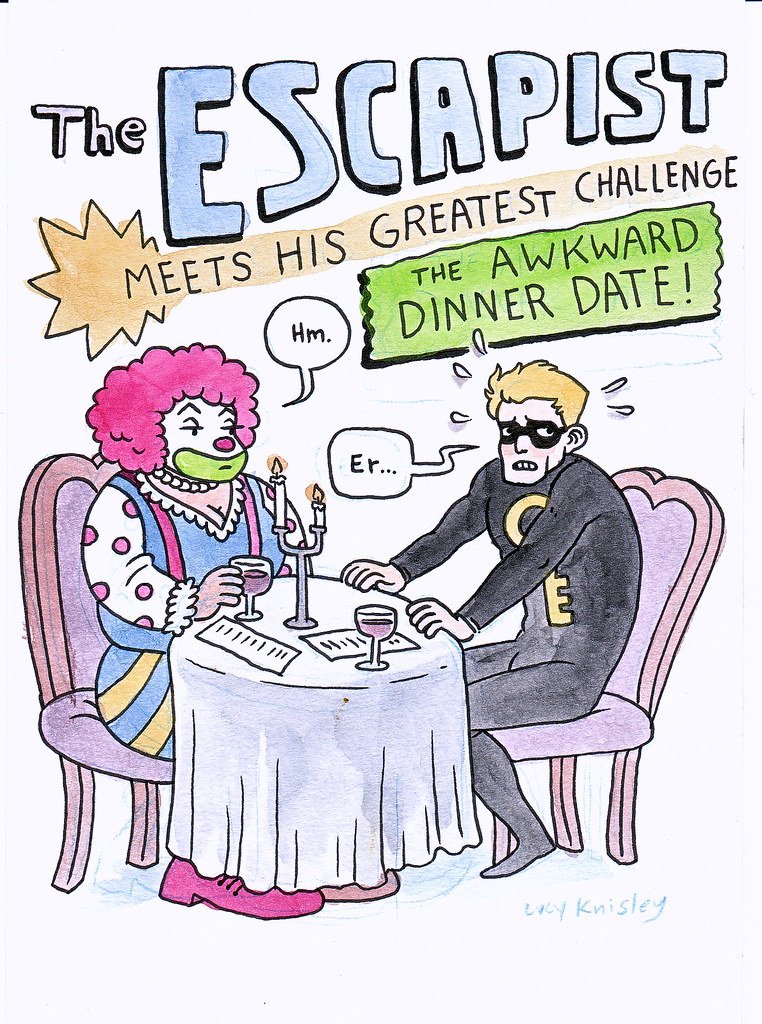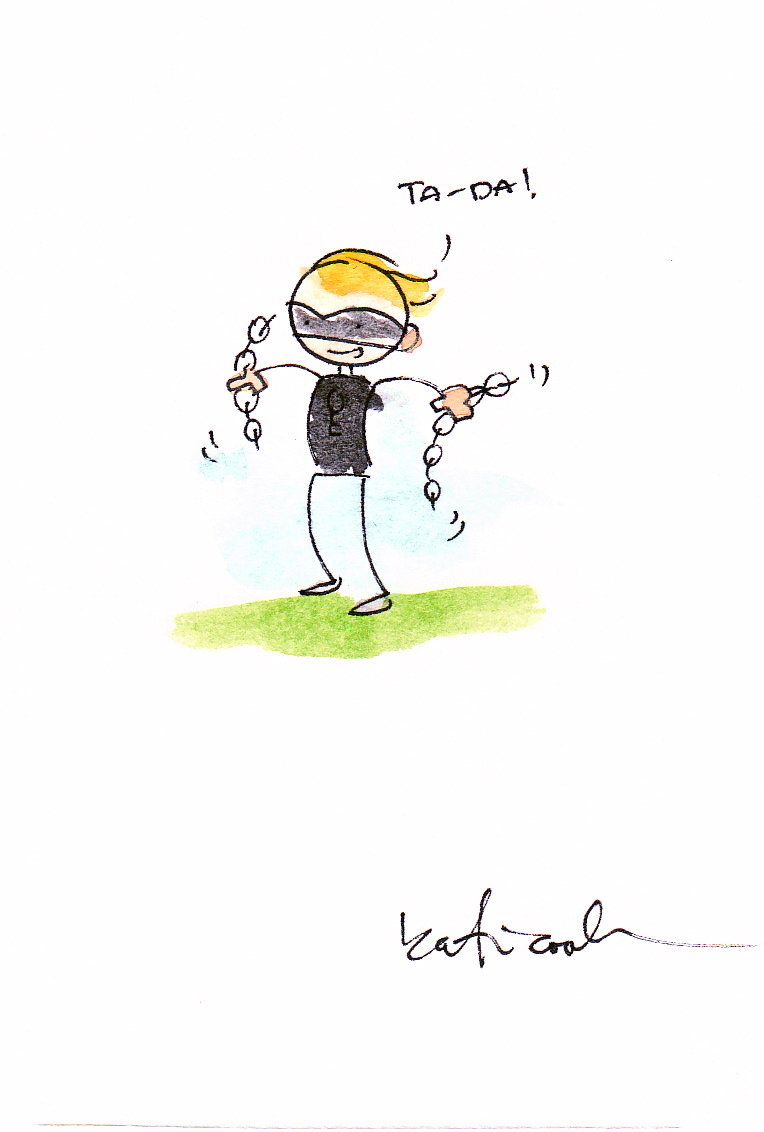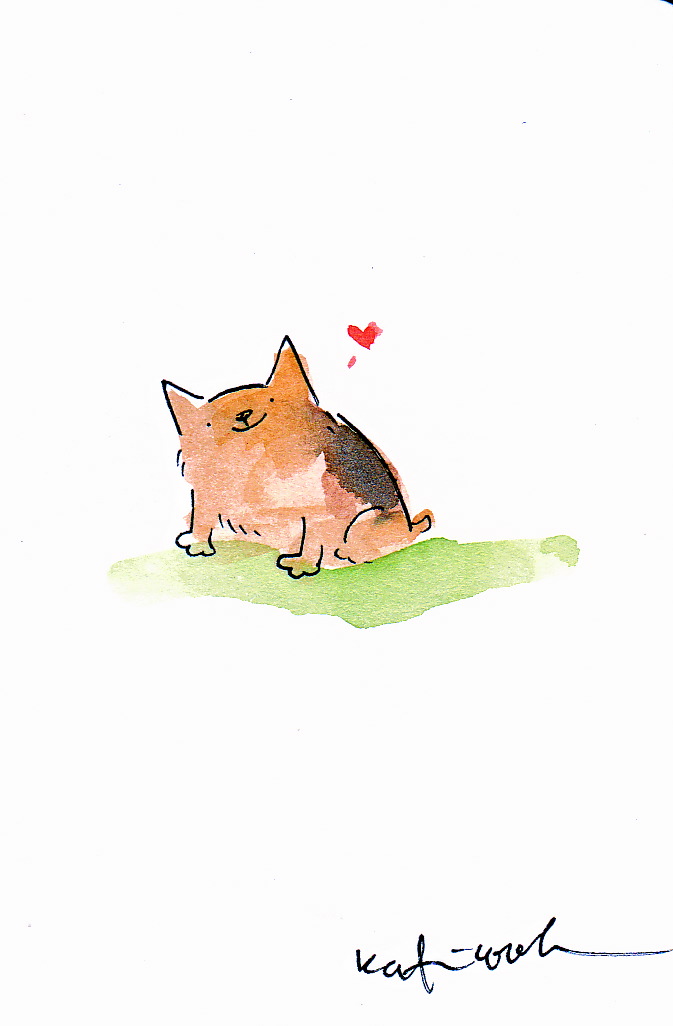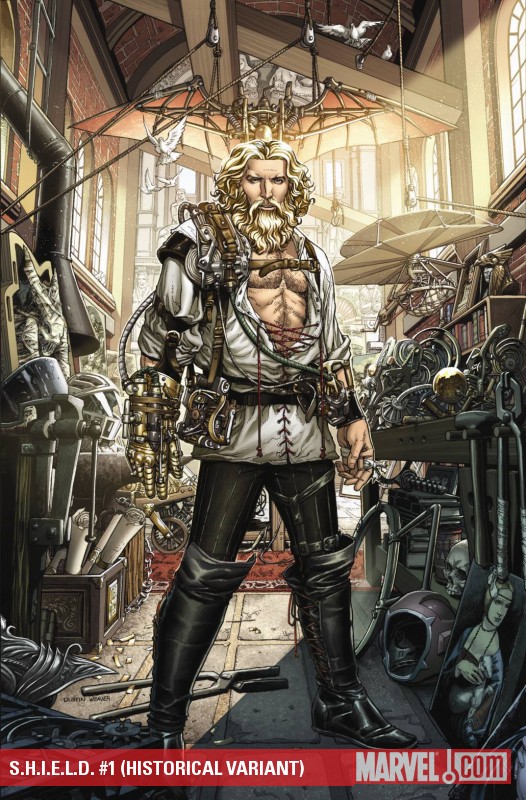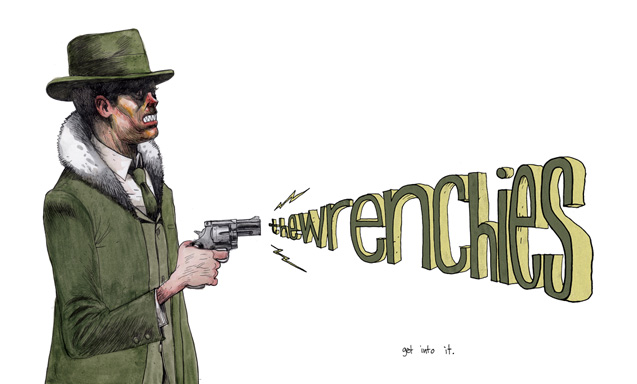• NOTE • This review was written shortly after the release of issue 40, and I have re-published it here with only two changes, both regarding grammar. • NOTE •
-Ex Machina- (eks•mock•een•uh): Referencing the Greek stage mechanism of the Gods appearing during the denouement of plays to resolve the conflict quickly and somewhat unexpectedly; Deus Ex Machina, translated, means "God from the machinery." Generally viewed as a weak or hackneyed method of wrapping up a story.
Written by Brian K. Vaughan, illustrated by Tony Harris, and published through WildStorm Comics, Ex Machina is the tale of New York City resident/Mayor/former superhero Mitchell Hundred. It takes place in many settings, including varying years. Readers have seen Hundred as a young boy asking his mother about leagues of women voters, as an adult dealing with the everyday happenings of a city that never sleeps, and also witnessed glimpses into his days as the high-flying hero, the Great Machine.
This book is definitely not hackneyed or weak.
Over the course of 40 issues readers have been taken through a tale that has touched on many different themes, some of which include a general sense of belonging, gay rights, drug use, and on and on. We may never know whether scribe Brian K. Vaughan is filling the pages of his second finite series after "Y: The Last Man" with his own beliefs and opinions, but something that is certain is his knack for crafting a compelling story, creating characters that dare to be as broad and varied as people so often are on this stage we call real life.
Likewise, Tony Harris takes Vaughan's words and turns them into gorgeous images, faces rendered so wonderfully true to life that readers can see the emotions and understand that this book is working on more than one level; it is a fantastic example of why comics are so entertaining when they are created successfully, when the art compliments the words, and vice versa.
I love this book. It arrived at a time when I was becoming somewhat more politically minded, and the idea of a superhero who ends up becoming the mayor of arguably the biggest city in the world (metaphorically) was intriguing enough for me to pick up the first issue. Vaughan managed to make a book about politics entertaining to someone (me) who finds most political conversation/theory boring and tedious, and usually gets informed of such by watching the "Daily Show."
This book has literally taught me things. At the moment the only thing I can think of is the definition of the word "constituent," but I'm positive there have been other lessons learned. Even if that isn't true, expanding my vocabulary is a win in my mind, and is certainly something America should look into.
My most recent lesson came with issue number 40, the issue I would undoubtedly characterize as Brian K. Vaughan's most personal to date. It was also my least favorite. There's something strange about this process, me selecting my least favorite issue, if for no other reason than trying to select the one read I disliked the most out of a series I like immensely is kind of counterintuitive. Alongside that, the idea that Mr. Vaughan took his personality and feelings and created this issue makes me somewhat reverent, so trashing the thing is kind of a dick move.
But then there's the critic in me, the side of my brain that realizes I won't enjoy everything, and that same side knows any artist who possesses their own critical mind understands that not everyone will enjoy everything they produce. My disappointment with the issue began the moment I saw it on the stands.
Featured on the cover is our faithful writer, Mr. Brian K. Vaughan, and his penciller, Tony Harris. Immediately I recognized the kind of story I was in for, and I think my exact reaction was something along the lines of "Ugghhhhhh." Issue 40 is a metafictional mess, a story that features the creators of the series which it is taking place in; essentially, it's like watching a movie of yourself watching a movie. I have seen the "meta" approach work very rarely, and one example is the film "Adaptation," written by Charlie Kaufman and directed by Spike Jonze. The majority of other occasions where an artist has saw fit to become self-referential has failed for me, and done nothing other than the exact thing which Brian K. Vaughan (the character) mentions in this issue: negatively affected my reading experience.
Tony Harris and Vaughan are visiting Mayor Hundred to see about working on his memoirs, which are to be published in comic book form due to the Mayor's love of the medium. While they are waiting for their appointment to arrive Tony Harris takes out his portfolio and begins sketching. "What are you working on?" Brian K. Vaughan asks. "Just sketching the two of us sitting out here in the waiting room. If we land this project, I thought it'd be cool to draw you and me into the first scene," Tony Harris responds. "Oh...yeah...I don't know, Tony. I'm not big into the whole Grant Morrison 'meta' thing. Seeing creators in a book kinda takes me out of the story, you know...?" I even view Vaughan's reference to self-referential storytelling tired, and not at all funny. In fact, while reading it, I found myself going, "Yes! You're right. This sucks."
My big problem with this issue is that it smacks of the word "filler." With issues hitting the stands with ever increasing irregularity, when I picked this one up and saw exactly what was inside, my gut reaction was that Vaughan had written something quickly, an easy story to put something out there so WildStorm would have an issue of "Ex Machina" to sell.
During the story Vaughan meets Mitchell Hundred, and they discuss his graphic novel memoirs, but quickly segue into a discussion of Vaughan's personal life, mainly his Missing-In-Action girlfriend, who moved to California for grad school.
"And why the hell didn't you follow her?" Hundred asks. This is where it may or may not get personal. Brian K. Vaughan (the character), tells of watching the first World Trade Center collapse, sitting on his roof and witnessing the mayhem. While he was out there he saw his neighbors, which is referenced as an odd occurrence for New York City. After that he describes watching the Leonids (a meteor shower) from that same vantage point, and seeing the same people whom he'd witnessed complete horror with. They were smiling, oohing and aaahing, and it was like sitting on a lawn during the 4th of July for Vaughan (the character), and thus his love for New York was defined. Hundred responds by saying that he can write comics from anywhere, no? Of course Vaughan says yes, and this is where the one piece of this issue arrives that may offer up something other than a goofy meta story designed to fill a hole on the shelf.
"If you're not with your people, a city is just a fucking place. Even this one," Hundred says. Right there, we are given Hundred's dedication and love for New York City, and that is my guess as to what Brian K. Vaughan (the writer) was trying to do with this issue. Unfortunately, if the readers had been paying attention over the previous 39 issues, they probably already knew that. After all, this is a guy who became a superhero when he realized he may be able to help people other than himself, and transitioned into the role as Mayor when he decided that would be a more actionable position. In my mind those two things prove the love of the city in themselves, so this issue was essentially unwarranted.
I have no idea if any of the stories Brian K. Vaughan (the character) relays are true or not. Maybe he did watch the horror on that day in September from his roof, maybe not. I don't know everything about the guy, and realistically, I don't want to. I do know that his wife's name is Ruth, however, and the title of this story is "Ruthless." The fictional Mayor Hundred asks why Vaughan didn't follow his girlfriend to California, and Vaughan responds, "You." So maybe that means (in reality) he stayed in New York for a little, working on this comic I love so much, and eventually realized he could write the thing from the opposite coast, where the love of his life had relocated.
Then again, maybe not. Oddly enough I've reread this issue about five times. I think I get some sort of strange satisfaction from having an issue of one of my favorite comics I dislike so much. With it being written by an author who is attempting to make this fantastic story as true to life as possible, and an artist doing the same, I came to this understanding: not every day is a great one. Through that, I came to enjoy this issue, mostly because I dislike it so much.



